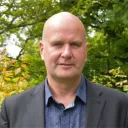This Educational Update Session by Jane Foster, USA, and Hugo Critchley, United Kingdom, was recorded on 16 October 2022 at the 35th ECNP Congress in Vienna, Austria.
Cross-talk between the immune system and the brain is essential to neuronal development, brain health, and behavior. Gut microbiota are crucial for immune system development and function, making it important to consider the microbiota-immune-brain axis in brain health. Recent work examines the impact of the loss of functional T cells on the development of the gut-brain axis. A longitudinal design maps the temporal gut microbial and gut/brain metabolomic trajectory during postnatal development from early life to adulthood in wild type B6 and T cell receptor deficient mice (TCR β–/–δ–/–, due to genetic knockout of both beta and delta chains of the T-cell receptor). TCR β–/–δ–/– mice show an altered trajectory of microbiome maturation, reduced alpha diversity, several differences in microbial composition, including increased abundance of Akkermansia and reduced abundance of Rosburia, and changes in gut and brain metabolite profiles. Integrated analytical approaches reveal that reduced cecal and fecal butyrate levels are associated with Muribaculaceae taxa in TCR β–/–δ–/– mice. Moreover, T-cell related changes in gut microbiota and metabolome are paralleled by changes in neuroactive metabolites in the brain. This work demonstrates that bidirectional T-cell-microbe communication is a component of normal microbiota-immune development and highlights specific bacteria and metabolites key to this crosstalk. These findings have important translational value as researchers consider how microbiota-immune relationships influence the development of the microbiome and impact human brain development. Additionally, a mechanistic understanding of the molecular entities involved in this crosstalk in animal models and humans has the potential to provide novel biomarkers and new targets for microbiota-based therapies that can foster healthy microbiome maturation alongside healthy brain development.
Views and opinions expressed in these videos are those of the presenters and do not necessarily reflect the official position of ECNP. The content of these videos should not be used in any way as the basis for treatment decisions.


